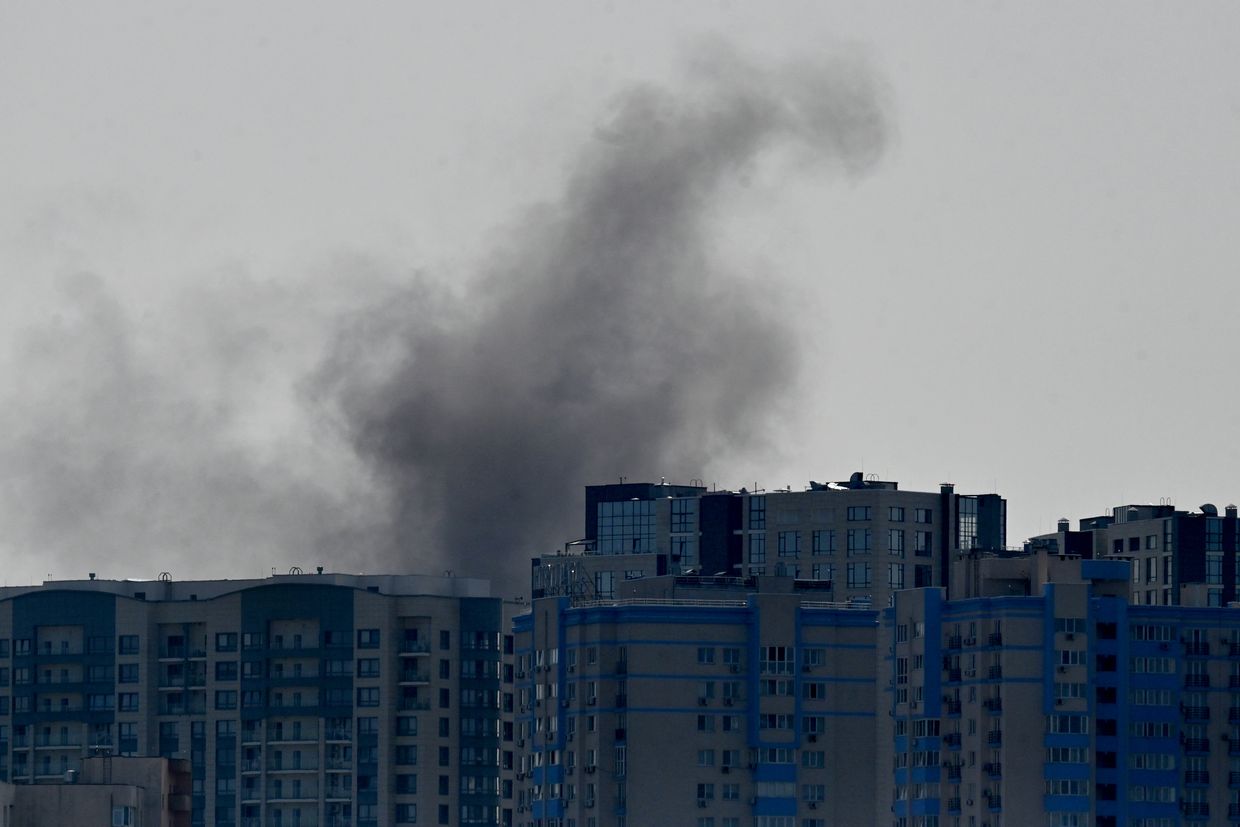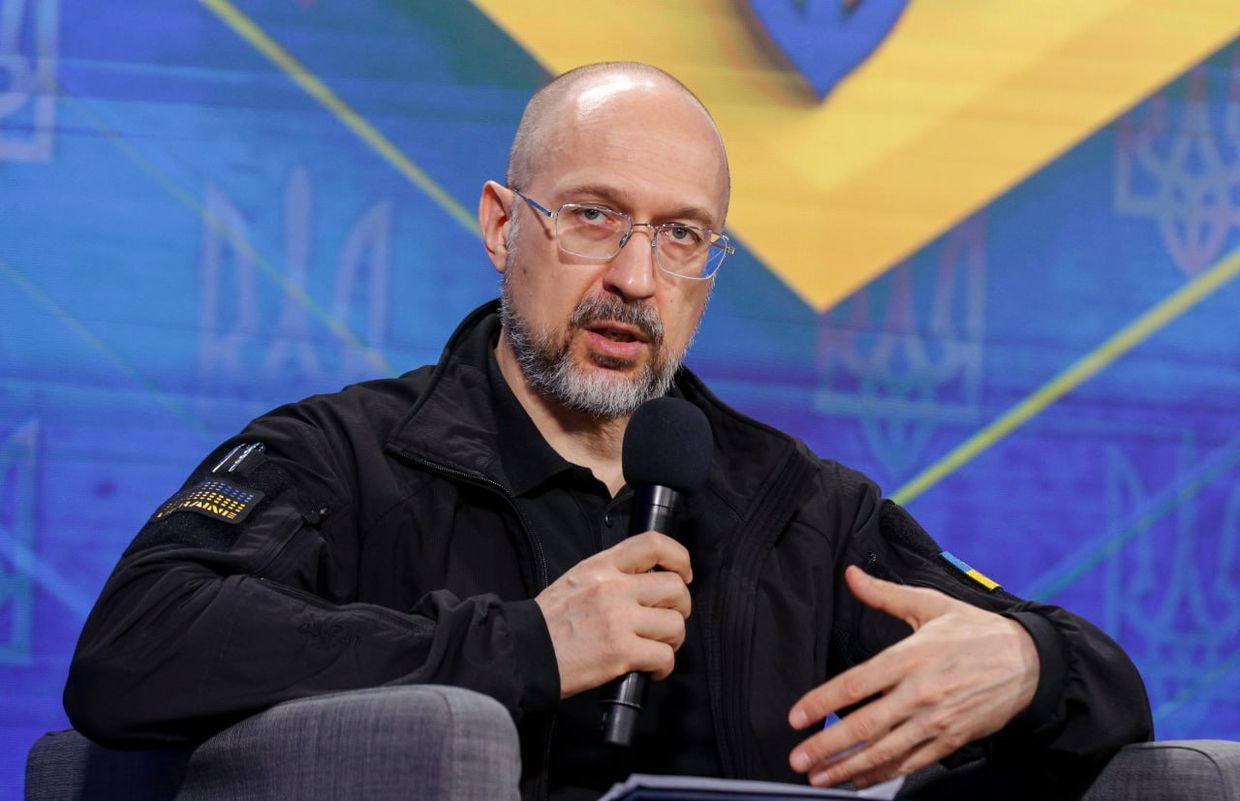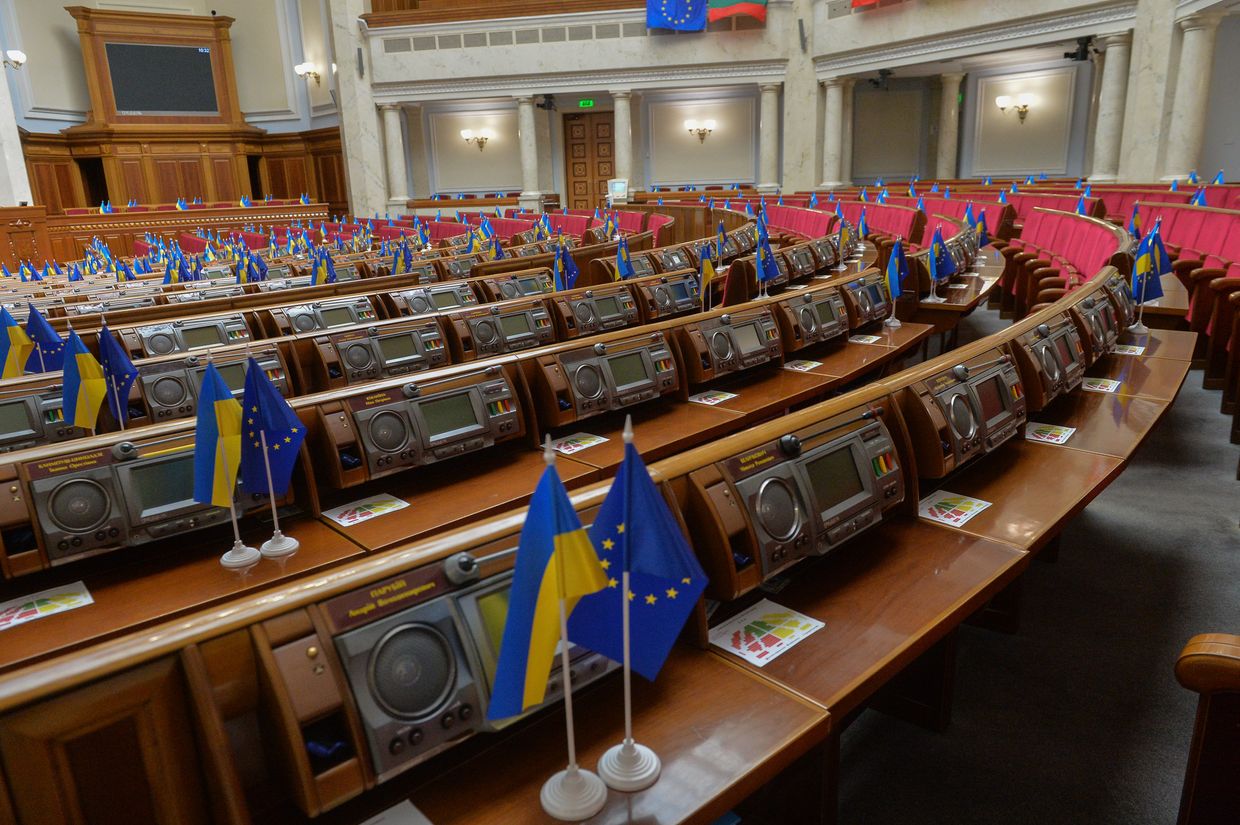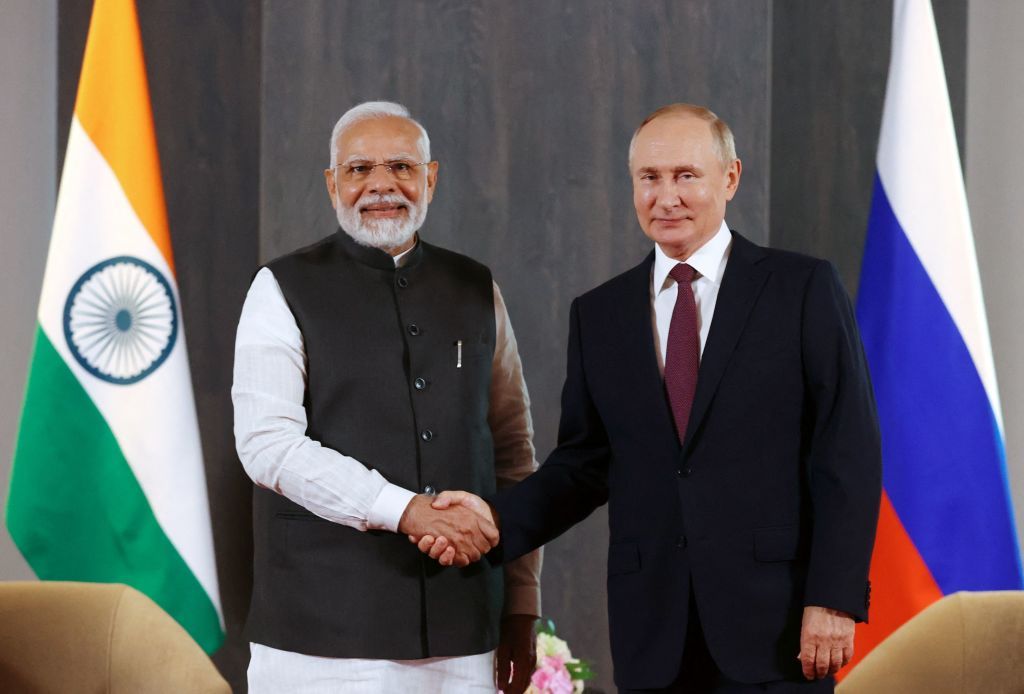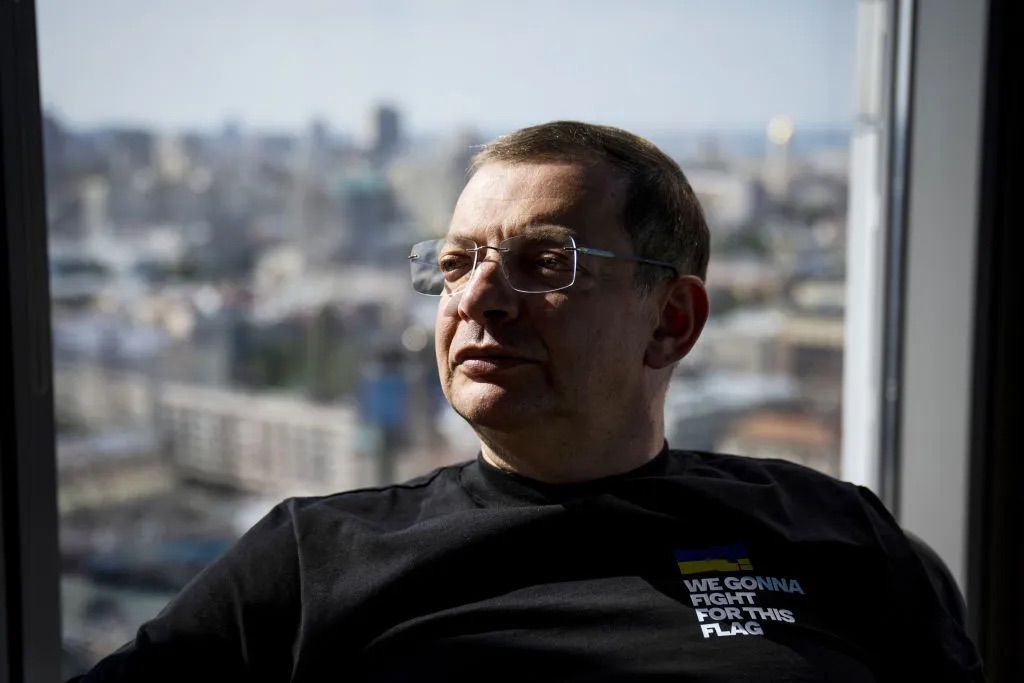Ukraine state-owned enterprises weekly — Issue 144

Editor’s Note: This is issue 144 of Ukrainian State-Owned Enterprises Weekly, covering events from Aug. 17-24, 2024. The Kyiv Independent is reposting it with permission.
Energy sector
Cabinet leaves current gas tariffs for heat producers and households unchanged. On Aug. 23, the Cabinet of Ministers extended the public service obligations for the supply of gas to district heating companies, households, gas distribution companies, and electricity producers until the end of the next autumn/winter season on April 30, 2025.
According to Naftogaz, as before, household customers can buy a cubic meter of gas (under the “fixed” tariff plan) for Hr 7.96 ($0.19), including VAT.
Other gas tariffs also remain unchanged (all tariffs below include VAT):
- For heat production for households – Hr 7.42 ($0.18);
- For heat production for institutions funded from the state budget – Hr 16.39 ($0.40);
- For electricity generation in the condensation cycle (electricity generated from water steam) – Hr 10.5 ($0.25); and
- For electricity generation in the heat cycle – Hr 16.5 ($0.40).
As we reported in Issue 129, on April 23, Naftogaz’s subsidiary, Naftogaz Gas Supply Company, reported extending its “fixed” tariff plan for another year.
As we wrote in December 2023 in Issue 113, Ekonomichna Pravda (EP) wrote that, according to USAID, the total level of unsettled debts in the gas market exceeded Hr 190 billion in early September 2023 (4.77 billion euros at that time).
According to the data of the National Energy and Utilities Regulatory Commission (NEURC) seen by EP, the total debt exceeded Hr 200 billion as of Oct. 1, 2023 (5.11 billion euros at the time).
“Our goal is to gradually move to economically justified energy tariffs and cancel all PSOs (public service obligations) by the fourth quarter of 2025. This should be done in conjunction with the systematic settlement of debts in the gas and district heating markets,” Oleksandr Butenko, deputy minister of Communities, Territories and Infrastructure, then explained. See Issue 113 for more detail.
Ukrenergo temporarily reinstates scheduled power outages for households across the entire country. On Aug. 18, Ukrenergo announced that it was bringing back planned restrictions on electricity consumption.
The main reason is the consequences of massive Russian attacks on energy facilities in March- June 2024. The situational reason is the rise in air temperature above 30°C: As consumption increases during hot weather, the deficit in the power system increases, and there is no capacity to cover it, the company explained.
Ukrenergo used scheduled outages on Aug. 19, 20, and 21. The company then cancelled the outage for the following days due to a drop in the temperature and the early completion of scheduled repairs at a nuclear power unit.
From March 22 - June 19, Ukraine faced six massive missile and drone strikes on electricity facilities. See our Issues 124, 125, 127, 129, 131, and 134 for more detail.
After every Russian mass missile attack on Ukraine’s vital infrastructure, emergency outages take place, lasting for days due to the ongoing repair works. During such outages, people in Ukraine are often left without electricity, heating, water supply, or access to mobile phone networks.
On May 14, Ukrenergo launched controlled emergency power outages for industrial and household consumers in all regions of Ukraine during evening peak hours. The power supply to critical infrastructure was not restricted, the company said. See our Issue 132 for more detail.
Two weeks later, Ukrenergo temporarily abandoned hourly outages as the repairs of two nuclear power units were completed. Ukrenergo’s CEO Volodymyr Kudrytskyi then explained that the absence of hourly power outages in the last days of May was a temporary improvement, and the situation would soon deteriorate again as certain units at nuclear power plants would undergo repairs.
In July 2024, Ukrenergo temporarily returned to massive outages due to the heat and repairs of power units. The outages then stopped on July 30.
Ukrenergo resumes electricity exports. On Aug. 23, Ukrenergo announced that it would resume electricity exports to neighboring countries starting from Aug. 25.
The significant reduction in the consumption due to a drop in the temperature and the early completion of scheduled repairs at a nuclear power unit created a surplus in the Ukrainian power grid during daytime hours, the company explained.
According to Ukrenergo, the power system should operate in a balanced manner – the amount of energy produced at any given moment should match the amount consumed.
There are two ways to overcome the surplus:
- limiting the generation of Ukrainian solar power plants; and
- resuming electricity exports during daytime hours.
As it is not economically expedient to limit the operation of solar power plants, Ukrenergo decided to resume electricity exports from Aug. 25. Exports would take place only during periods of surplus when solar power plants are actively operating. During periods of peak consumption, when there is insufficient capacity in the power system, no electricity would be exported from Ukraine, the company noted.
From March 22 to June 19, Ukraine faced six massive missile and drone strikes on electricity facilities. See our Issues 124, 125, 127, 129, 131, and 134 for more detail.
The massive shelling caused a shortage in the power system, leading to the introduction of power outage schedules (see above). In June 2024 alone, Ukraine imported more electricity than in the whole of 2023, with no exports.
Privatization
Head of SPFU interviewed. Vitaliy Koval, head of the SPFU, was interviewed by liga.net this week. We selected the key points.
On large-scale privatization:
- “This year, we plan to put the first five (large) assets up for privatization. In addition to the already announced auctions for the Ukraine Hotel and the United Mining and Chemical Company (UMCC), we plan to put the AEROC plant up for sale in autumn. The SPFU has completed preparations for the auction, setting the starting price at over Hr 965 million ($23 million). The Cabinet of Ministers now has to approve this price and (other) privatization terms.”
- “Preparations for privatization of two more nationalized assets, the Demurinsky Mining and Processing Plant and a majority stake in Kyiv’s Ocean Plaza shopping mall, are underway.”
As we reported in Issue 141, the SPFU announced the first two large-scale privatiation auctions at Prozorro.Sale system: for the Ukraine Hotel and UMCC. The auction for the Ukraine Hotel is scheduled for Sept. 18, and the UMCC auction, for Oct. 9.
As we wrote earlier, SPFU planned to privatize construction materials producer AEROC, previously owned by sanctioned Russian oligarch Andrei Molchanov. See our Issues 97, 100, 106, and 110 for more detail.
As we wrote in Issue 140, the Cabinet added two more seized Russian companies to the large-scale privatization list: AEROC and Demurinsky Mining and Processing Plant.
As we reported in Issue 127, the SPFU said in April 2024 that the state’s stake in Ocean Plaza would be offered for Hr 1.65 billion (39.5 million euros at the time).
On small-scale privatization:
- “As of mid-August 2024, the total economic effect of the auctions reached almost Hr 3.14 billion ($76 million), including sales revenues, VAT, and the new owners’ obligations to repay the debts (of the companies they purchased via the privatization auctions).
On UMCC’s privatization:
- “UMCC is now in a stable position, continuing to produce and export its products. It is a positive signal that the plant ended the first half of 2024 with a net profit. We are actively working on preparations for the privatization together with BDO Corporate Finance, an international advisor, and they confirm the interest of investors and the high chances of a successful auction. We are seeing significant interest from potential investors from around the world, including the U.S. and even Australia.”
- “The decision to sell Demurinsky separately from UMCC was made for several reasons. Firstly, UMCC is fully prepared for privatization, and adding Demurinsky would have delayed the auction and wasted valuable time. Secondly, after consultations with potential investors, we saw that there was no need to combine the two assets. Investors interested in creating a single complex would be able to purchase them separately at open auctions.”
- “In addition, there is a financial reason for a separate sale. The proceeds from the sale of UMCC would go to the state budget, while the proceeds from the sale of Demurinsky would be allocated to the Fund for the Elimination of the Consequences of Armed Aggression. This would make it possible to use the funds more efficiently and ensure that they are used for the country’s recovery.”
As we reported in Issue 106, the SPFU planned for UMCC to be one of the first large companies to be privatized. See more on the previous attempts to sell UMCC in our Issues 33, 41, 49, 56, and 57.
However, as we wrote in Issue 109, then acting head of the SPFU Oleksandr Fedoryshyn said later in October 2023 that the SPFU was going to offer investors to buy UMCC in a single package with the Demurinsky Mining and Processing Plant.
Vitaliy Koval, the newly appointed head of the SPFU, confirmed this later in an interview (see our Issue 117). In effect, this suggested that the SPFU’s previously announced plans to privatize UMCC as one of the first targets would be seriously delayed, if not put aside.
However, as we reported in Issue 133, the SPFU’s most recent communication on the matter on May 23 suggested that the fund discarded the idea of bundling UMCC and Demurinsky in a single lot.
On Ocean Plaza’s privatization:
- “We are acting strictly within the law. The issue of the shopping mall’s debt is currently in court. Once the court makes a final decision, we will determine whether we would sell Ocean Plaza with or without its debt obligations. The auction date would also be set. From a technical point of view, Ocean Plaza is ready for privatization. We have done all the necessary preparatory work.”
- “To date, the minority owner Andriy Ivanov’s UDP has not officially expressed a desire to participate in the auction, but we maintain an ongoing dialogue with them as shareholders. It is clear that they are interested in determining the future of Ocean Plaza and understanding who they would have to work with. The mall is currently operating and generating revenue. So UDP, as shareholders, have fulfilled their task.”
As we wrote in October 2023 (Issue 106), the SPFU said they wanted to sell the state’s 66.65% stake in Ocean Plaza, previously owned by sanctioned Russian oligarchs Arkady and Igor Rotenberg, with a starting price of Hr 1.3 billion (33.6 million euros at that time).
In November 2023, then acting head of the SPFU Oleksandr Fedoryshyn said that the Fund challenged the charter of Investment Union Lybid LLC, which owns the Ocean Plaza, and planned to change the management after the approval of the complaint. (See more in Issue 109.)
As we reported in Issue 113, Lanita Invest LLC, which owns 33.35% of Ocean Plaza and is controlled by businessman Andriy Ivanov, accused the government of restricting its rights and threatened litigation.
As we reported in Issue 127, the SPFU said in April 2024 that the state’s stake in Ocean Plaza would be offered for Hr 1.65 billion (39.5 million euros at the time).
On the Land Bank:
- “The project is in its final stages. We are now in the process of concluding land lease agreements. On Aug. 30, we plan to announce the first auctions for the lease of state agricultural land. They would take place at the end of September 2024. Land can be leased for 14 years for growing annual crops, and for 25 years for growing perennial crops.”
As we reported over a year ago (Issue 93), the SPFU was working out plans to centralize state property management, which included setting up a land bank.
We then wrote that the Cabinet transferred 25 SOEs, previously managed by the National Academy of Agrarian Science, to the SPFU on Aug. 11, 2023 (see Issue 100).
Later, the Cabinet took away 2,764 agricultural land plots with a total area of more than 104,000 hectares from SOEs. The SPFU-managed Agrarian Investment Fund was given control (see Issue 136).
The SPFU then announced that preparations for the Land Bank were complete. The next step was to corporatise the Agrarian Investment Fund, so it could act as a land auction operator.
Starting from July 1, 2021, Ukrainian citizens can legally buy and sell agricultural land. However, the sale and purchase of state-owned and communal agricultural land remains banned.
The SPFU’s attempt to sell the state’s stake in ZALK fails for the third time. According to Prozorro.Sale, the auction with a starting price of Hr 76 million ($1.8 million) was scheduled for Aug. 22, but it failed due to the absence of bidders.
It was the third attempt to sell the state-owned 97.5% stake in the Zaporizhzhia Industrial Aluminium Plant (ZALK).
The SPFU announced the ZALK privatization auction on Aug. 1, with a starting price of Hr 152 million ($3.7 million). That first auction was scheduled for Aug. 6, but it failed due to the absence of bidders. See Issue 143 for more detail.
The second auction was scheduled for Aug. 14, and the starting price was halved to Hr 76 million ($1.8 million), but it failed for the same reason.
Bilhorod-Dnistrovskyi port attracts Polish investors, another privatization attempt to be made. According to Prozorro.Sale, the State Property Fund of Ukraine (SPFU) scheduled an auction for the sale of the Bilhorod-Dnistrovskyi trade seaport for Sept. 6. The starting price is Hr 178 million ($4.3 million).
According to former Deputy Minister of Infrastructure Viktor Dovhan, Polish investors are considering participating in the privatization of the port.
This would be the ninth attempt to sell the port, liga.net added.
The first privatization auction for Bilhorod-Dnistrovskyi in March 2023 failed as no one registered.
At the second auction, the seaport was sold for Hr 220 million (around 5.6 million euros at the time) to Ukrdoninvest LLC, a company owned by Ukrainian businessman Vitaliy Kropachov. However, Ukrdoninvest did not pay up.
As we reported in April 2023 (Issue 85), the company said that it backed out while hashing out the terms of the purchase agreement with SPFU’s regional office in Odesa and Mykolaiv oblasts.
In June 2023, SPFU announced that it would put Bilhorod-Dnistrovskyi up for privatization for a third time, another attempt that failed. (See Issue 93.) In Issues 99 and 100 we reported about the following failed attempts to sell the port.
For more detail, see SOE Weekly’s Issues 74, 78, 79, 84, 85, 87, 93, 99, and 100.
SPFU completes the creation of the first state-owned Land Bank. On Aug. 22, the SPFU reported that it completed the corporatization of the Agrarian Investment Fund, creating State Land Bank LLC on its basis.
This is the first state-owned operator of agricultural land, 100% owned by the state. This is the final stage in the implementation of the Land Bank project before the official launch of the first online auctions for the lease of state land, the SPFU explained.
As we reported in June 2023 (Issue 93), the SPFU was working out plans to centralize state property management, which included setting up a land bank.
We then wrote that the Cabinet transferred 25 SOEs, previously managed by the National Academy of Agrarian Science, to the SPFU on 11 August 2023 (see Issue 100).
Later, the Cabinet took away 2,764 agricultural land plots with a total area of more than 104,000 hectares from SOEs. The SPFU-managed Agrarian Investment Fund was given control (see Issue 136).
The SPFU then announced that preparations for the Land Bank were complete. The next step was to corporatize the Agrarian Investment Fund, so it could act as a land auction operator.
Starting from July 1, 2021, Ukrainian citizens can legally buy and sell agricultural land. However, the sale and purchase of state-owned and communal agricultural land remains banned.
Ukrainian SOE Weekly is an independent weekly digest based on a compilation of the most important news related to state-owned enterprises (SOEs) and state-owned banks in Ukraine.
The contents of this publication are the sole responsibility of the editorial team of the Ukrainian SOE Weekly.
The SOE Weekly is produced and financed by Andriy Boytsun. Communications support is provided and financed by CFC Big Ideas. The SOE Weekly is not financed or influenced by any external party.
Editorial team: Andriy Boytsun, Oleksiy Pavlysh, Dmytro Yablonovskyi, and Oleksandr Lysenko.


